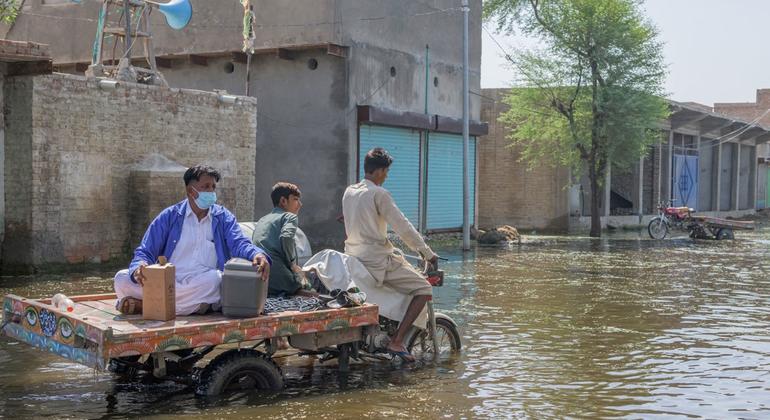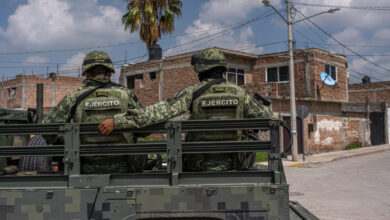WHO warns of increasing public health risk in flood-affected Pakistan.

The United Nations health agency says public health risks are increasing due to damaged infrastructure, stagnant water and inadequate sanitation facilities.
Dr. Richard Brennan, WHO The Regional Emergency Director said that the disaster had pushed the country to the brink and the disease was rampant.
More than 540,000 cases of malaria have been reported. Other health threats include the growing number of diarrheal cases, ongoing dengue epidemics, measles, and diphtheria.
– Dr. Richard Brennan
He added that a food crisis is looming, the economy is in recession and winter is fast approaching. The eight million people affected by floods in need of medical assistance need essential medical supplies and access to essential health care services.
Many disease threats
Dr Brennan says humanitarian agencies face an uphill battle. “In particular, large amounts of persistent floodwater have created breeding grounds for mosquitoes, leading to an ongoing malaria outbreak in 32 districts.
“From July to early October 2022, more than 540,000 cases of malaria were reported. Other health threats include the growing number of diarrheal cases, ongoing dengue epidemics, measles, and diphtheria.
He says that among the biggest concerns is the high rate of severe acute malnutrition.
“Access to clean water and sanitation is still limited, people use contaminated water for household consumption. Pregnant women need access to clean and safe delivery services.”
WHO expressed concern that, amid diverse competing needs, the international response has failed to meet the urgent needs of communities affected by floods.
More than $81.5 million is needed to respond to the health crisis in flood-affected areas of Pakistan to ensure coordinated delivery of essential healthcare services, manage effective in severe acute malnutrition, stronger outbreak detection and control.

A young girl collects medicine from a mobile medical unit set up for flood victims in Shangar district, Pakistan.
Provide emergency supplies
With funds available, WHO explains that it is acting quickly to protect health and provide essential services, especially for those displaced by floods, through static health camps and mobile.
So far, $1.5 million worth of medicine and emergency supplies have been distributed while more than $6 million worth of supplies are in transit.
Efforts have been scaled up to prevent and control outbreaks, including strengthening surveillance, implementing vaccination campaigns against measles and cholera, ensuring early diagnosis and treatment, or malaria, and provide clean water.
In addition, 10 Emergency Operations Centers (EOCs) and three operations centers have been established in Sukkur, Hyderabad and Naseerabad districts.




